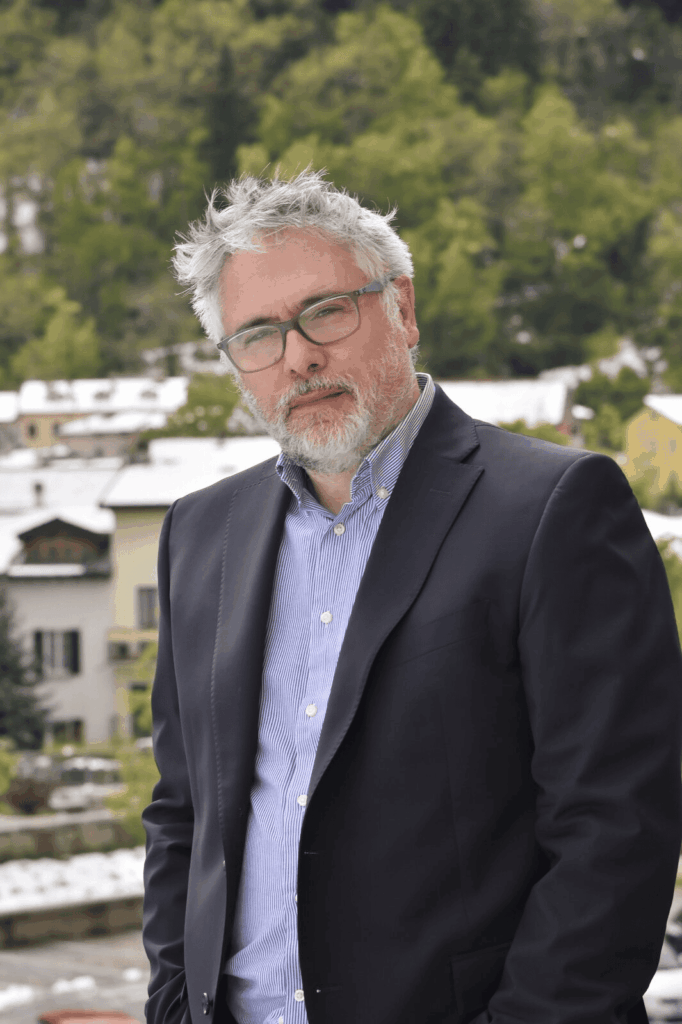
EMANUELE FERRARI graduated with honors in Philosophy of Language at Bologna University, he is a Language Arts teacher in middle school, philosopher, writer, and educator. He collaborated with La Gazzetta di Reggio and with Edizioni Diabasis. He’s founder of the Scuola di Scrittura “Alla ricerca dell’ombra” (“In search of the shadow” Writing School), and of the publishing house Abao Aqu. He has curated various cultural projects and art expositions. He is author of short stories and narrative essays, some of his recent works are “Nei paesi dell’allegria” (Abao Aqu 2019), “Il posto dei libri. Per una biblioteca del cuore” (Mimesis, 2019) e “Artemio. Un romanzo per tessere” (thedotcompany 2020). Ferrari is also editorial director for Abao Aqu, where he continues to promote the bond between writing, community and landscape.
At the moment, he is mayor of Castelnovo ne’ Monti, in the Reggio Emilia Apennine.
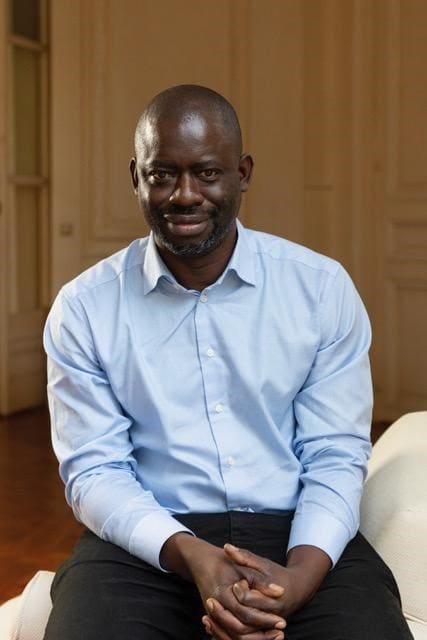
FELWINE SARR is a Senegalese academic, economist and writer. He currently holds the Anne-Marie Bryan Chair in Romance Studies at Duke University in the USA, having previously taught at the Université Gaston Berger in Saint-Louis, Senegal, where he was a professor of economics and an adjunct professor.
He is the co-founder of the Ateliers de la Pensée, an organisation that promotes critical and innovative dialogue on the transformations of Africa and the world through intellectual confrontation between Africa and the diaspora. His publications include: Afrotopia (Philippe Rey, 2016); Traces (Actes Sud, 2021; translated into Wolof, Editions EJO, 2023); L’Economie à Venir (Les Liens Qui Libèrent, 2021), co-authored with Gaël Giraud; Les Lieux Qu’Habitent Mes Rêves (Gallimard, 2022); and Le Bouddhisme Est Née à Colobane (Philippe Rey/Jimsaan, 2024).

Cardinal GIOVANNI BATTISTA RE is Prefect Emeritus of the Bishop Congregation and Dean of the College of Cardinals.
On September 16th, 2000, he was nominated Prefect of the Bishop Congregation and President of the Pontifical Commission for Latina America.
His collaboration with the Pope has always been ongoing. As Substitute of the State Secretariat, he accompanied Holy Father John Paul II in numerous apostolic journeys, both in Italy and in foreign countries. He was ordained bishop and cardinal in the February 21st 2001 Consistory by Pope John Paul II. With the Pope’s death on April 2nd, 2005, he automatically left his duties, but on April 21st of the same year, the new Pope Benedict XVI newly confirmed both of his assignments.
Since 2010 he is Prefect Emeritus of the Congregation for Bishops, and since 2020 he became dean of the College for Cardinals, role which Pope Francis confirmed again in 2025.
He has taken part in Tonalestate since 2003.
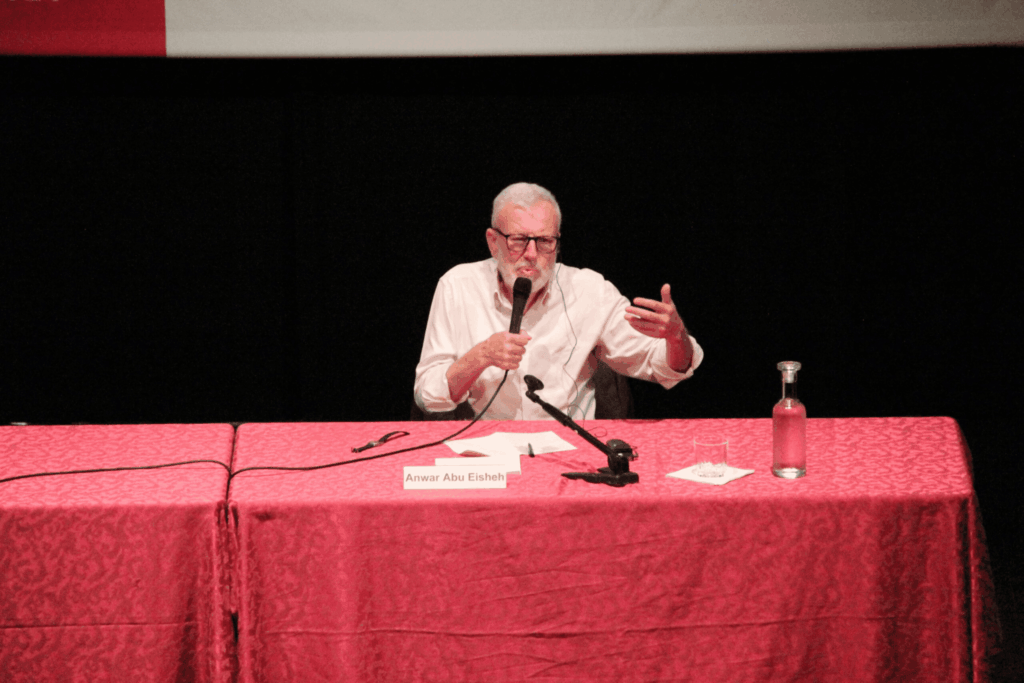
After having done his school years in Algeria, ANWAR ABU EISHEH obtained his Law degree at the Université Paris 10 in 1980. Professor Anwar Abu Eisheh was banned from the Palestinian territory in 1974. After having suffered a long time in prison, he moved to France, where he continued his activity for pacifist associations. After the Oslo agreements he was able to go back to Palestine, and, at the moment, he is a professor in the Law faculty of the Al Quds University in Jerusalem, where he teaches Labor Law, Civil Law, and Maritime Law. He has also held office as Minister of Culture for the Palestine Authority in Ramallah. He participated as an expert in various missions (European Union, Unesco, Isprom, ISISCO).
Today, he mainly works in educational actions for children in emergency situations in the occupied territories, mainly in Hebron, his city, one of the hottest spots in the Israel-Palestine issue.
He has taken part in Tonalestate since 2002.
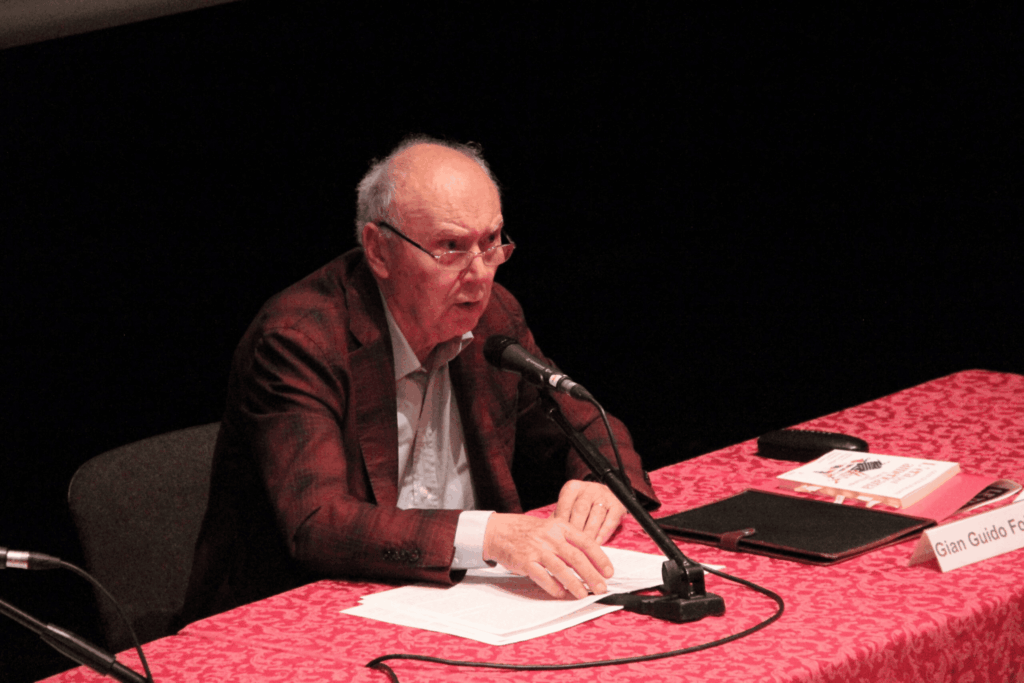
GIAN GUIDO FOLLONI was a journalist for Avvenire, author and producer of divulgation programs for Rai Uno, Senator and Minister for the Relationships with the Parliament.
In the year 2000 he became vice president of the Italian Institute for Asia, and the following year he became its president. In 2001 he became a member of the Department of Foreign Affairs for the Margherita party and of the public relations with Asia and the Arabic Countries.
In 2010 he was nominated counsellor of the Centre Union, of the guarantor committee, for the new National Party. In January 2014, he left the Centre Union to join the Democratic Centre.
He has taken part in Tonalestate since 2001.
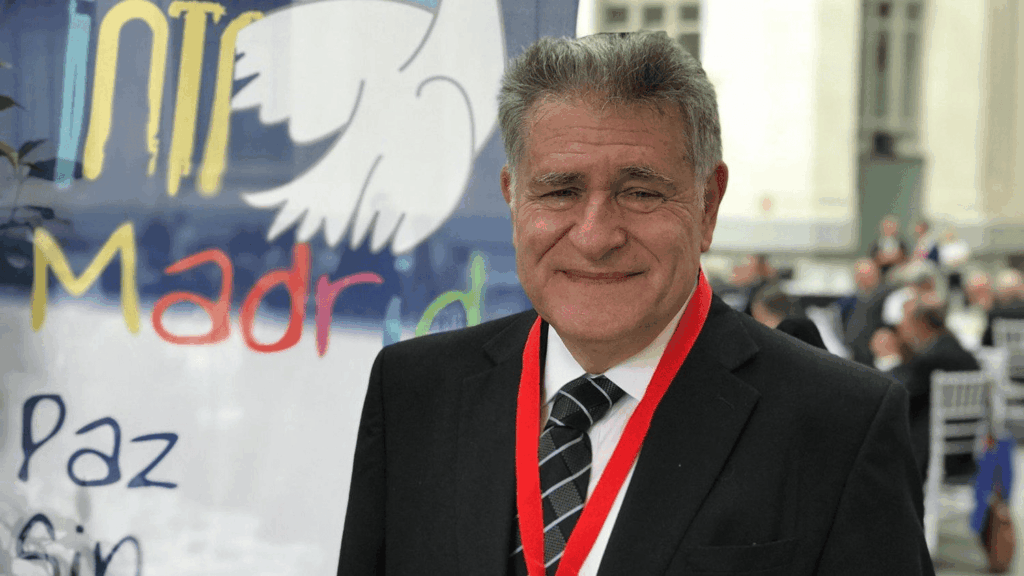
ABRAHAM SKORKA is an Argentinian rabbi and academic, engaged in interreligious dialogue and in peace advocacy. He has a degree in Chemistry and Rabbinic Studies, and he has guided for 42 years the Benei Tikva Synagogue in Buenos Aires. He was the rector of the Latin-American Rabbinical Seminary.
He was a friend of Pope Francis, and he published On Heaven and Earth (2013) with him. He was a professor in the United States at the Saint Joseph’s University, where he worked in close contact with the Institute for Christian-Jewish Relations (2018-2020). He was Distinguished Visitor Professor at the Philadelphia Gratz College (2020-2022).
He has been honored with various international awards and lauree honoris for his contribution to the Christian-Jewish dialogue.
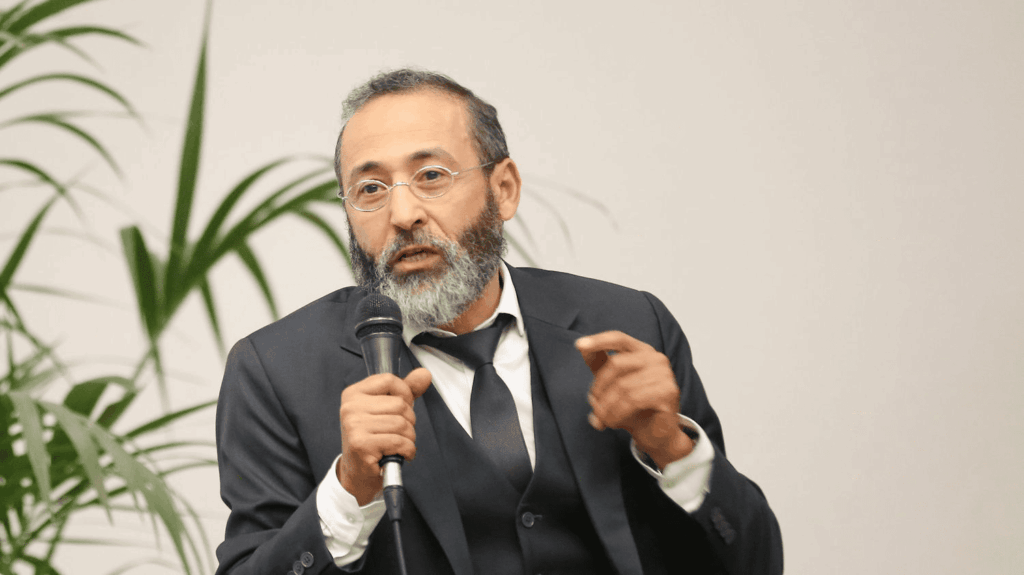
TAREQ OUBROU is imam of Bordeaux. Born in Morocco, in 1979 he enrolled in the Medicine faculty in Bordeaux, France. He abandons his studies to get closer to the French muslim community after having “discovered God in a second” in the same year. He begins to find interest in and study religious sciences, and he starts the path to become imam.
In 1991 he became imam of Bordeaux. He is president of the imam of France association, and founder of the AMG association (Gironde muslims association), tied to the UOIF (Union of the islamic organisations in France).
He is known for his public positions on religious themes, he believes in a “liberal islam”, one that helps young people to better understand the Quran, and that is conscious of today’s muslim presence in France.
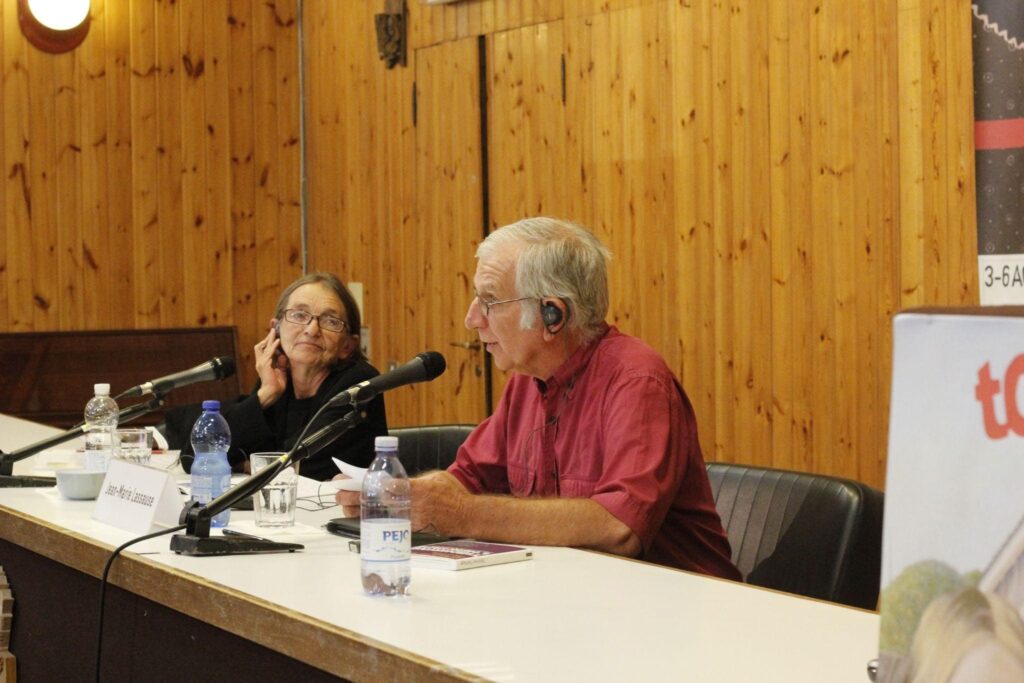
JEAN-MARIE LASSAUSSE is a priest of the Mission de France and agronomist; in 2001 he was given the task by the Algeri Archbishop of taking care of the Tibhirine Abbey’s cultivations. He himself goes under escort to do this, and it takes a part of his week. Since, in 2011, the French movie “Des hommes et des dieux” came out, every day someone arrives in this place full of emotions, where the seven Trappist monks lived, were abducted and killed in 1996, during the civil war between Islamists and the army.
Part of his time is dedicated to retelling the story of the French monks that decided to stay in the monastery, despite the growing dangers, and that were abducted by an Islamist group in the night between the 26th and the 27th March, 1996. Their bodies, beheaded, were found some months later. Today, they’re buried in the convent’s cemetery, which was restored thanks to the offers coming from all over the world.
In 2011, his book “Tibhirine’s gardener” was published.
In 2018, he moved to Mostaganem, in Algeria, where he works as a gardener and with young students, with the help of the muslim confraternity Zaouia, which welcomes and helps the poor.
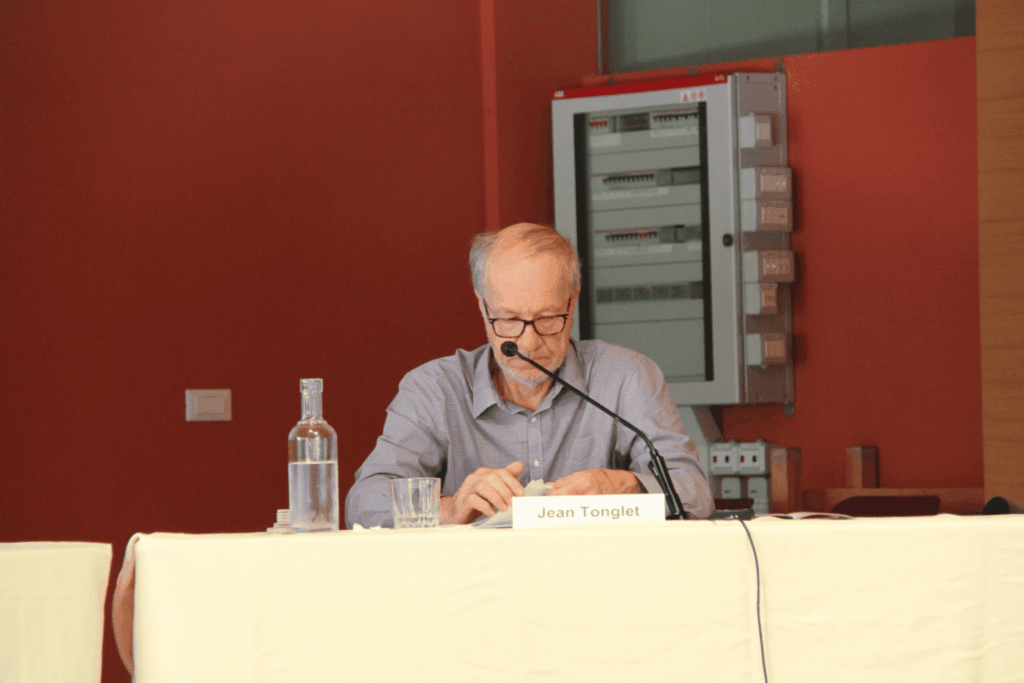
JEAN TONGLET is representative of the ATD Fourth World movement for the relations with Italy and the Holy See, and is director of the Joseph Wresinski International Center.
He moved to Rome (where the movement has been present since 1976) in 2011 to coordinate the activities of the movement ATD Fourth World. After the death of its founder, in Italy many activities were started to spread Father Wresinski’s ideas and the objectives of ATD Fourth World in society, in universities, in the Church, and in the public opinion.
Jean Tonglet, as spokesperson for ATD Fourth World, is author of various articles, interviews, and contributions that can give voice and make known in the world the action of ATD.
He has taken part in Tonalestate since 2012.
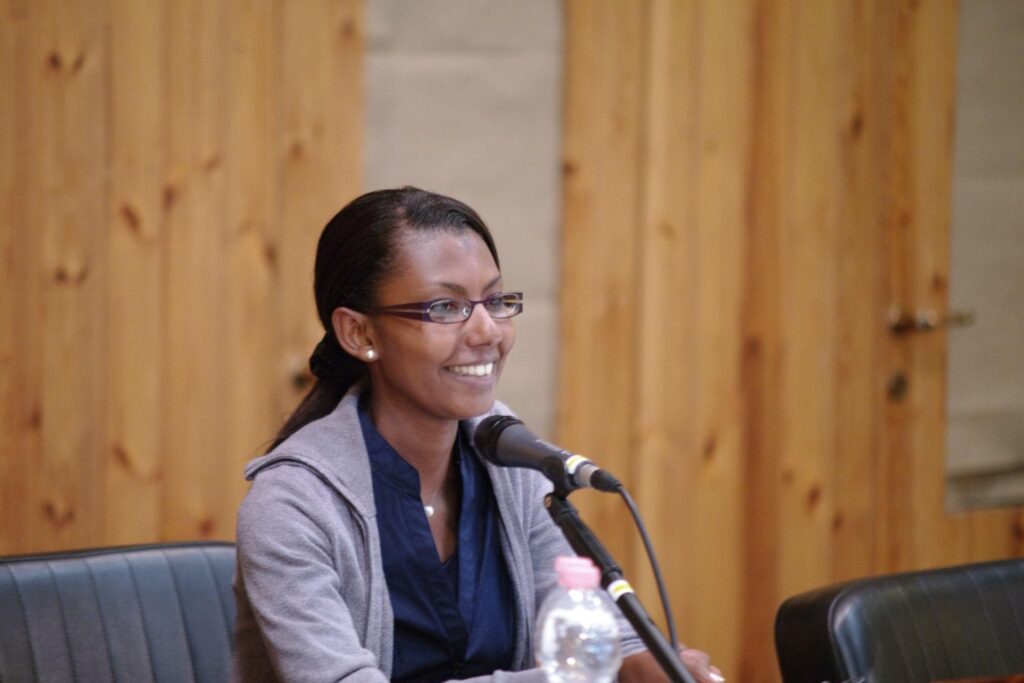
BEATA UWASE is a survivor of the genocide in Rwanda and is studying medicine in Rome.
The first day of the Rwandan genocide and her entire life are intertwined with the many lives of the people who helped her and who, day after day, gave her an uncertain but possible future. As a wounded little girl, she crossed the thousand hills of her country (as Rwanda is called, on the Great Lakes plateau), checkpoints, militias, and refugee camps to reach her new life in Italy. Thanks to the Progetto Ruanda association, Beata—like many other children orphaned by the genocide that saw the deaths of almost a million Tutsi and moderate Hutu people between April and July 1994 – can tell the story of the miracle she experienced in being spared by the Interahamwe militias and the determination to survive that allowed her to face the migrations and overcome the risks of a country trapped in the madness of genocide.
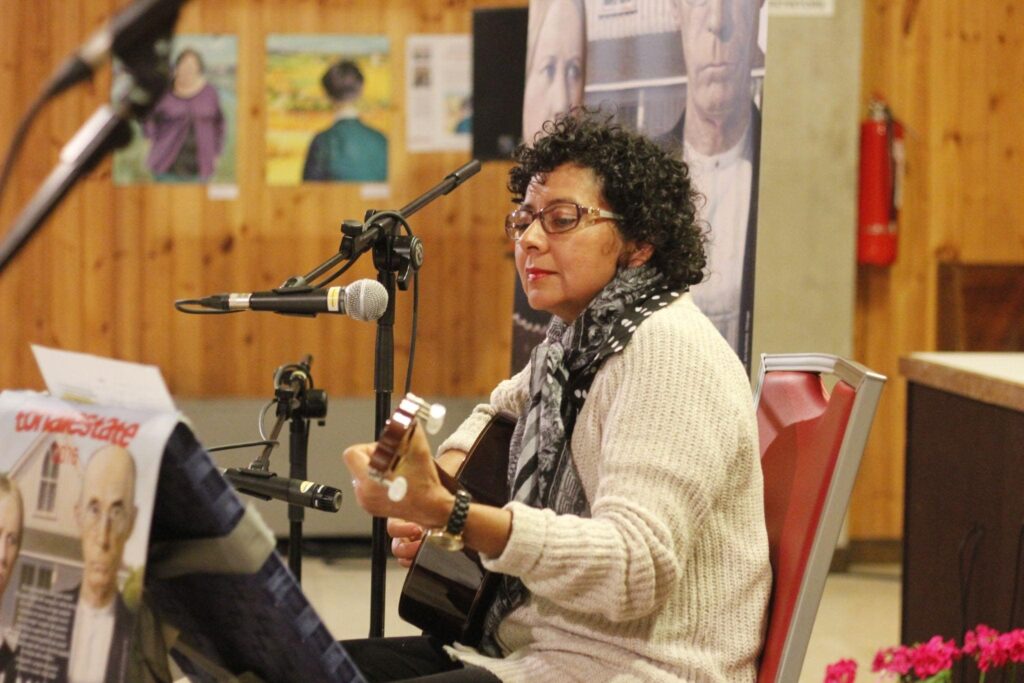
MAIDA OCHOA is a professor of Secondary Humanities Education and Literature at the Universidad Pedagógica Nacional Francisco Morazán in Tegucigalpa, Honduras, the same university where she obtained her master’s degree in Language Teaching.
She participates in national and international seminars and conferences, speaking on topics related to literature, education, and community service.
She is currently a professor and coordinator of professional internships in the Spanish Teaching degree program, and coordinator of the Vice Rectorate for Open and Distance Education (VREAD) at the Universidad Pedagógica Nacional Francisco Morazán. She also teaches Italian in the Foreign Languages department at the Universidad Nacional Autónoma de Honduras (UNAH) in Tegucigalpa.
She is president of the Honduran Association for Social Works (AHPOS), based in Tegucigalpa, and a member of the international association of educators The Great Teachers, based in Italy, from which she organizes, together with other friends, a great educational work, such as the Libros Libres project in the center of Tegucigalpa, in favor of the education of children and young people.
MERLE WHISTLER is a representative of the Oglala Lakota tribe, living on the Pine Ridge Reservation in South Dakota—one of the most impoverished places in the United States. Jobs are scarce, homes are overcrowded, and many families live without running water, heat, or electricity. Healthcare is limited. Education is underfunded. Opportunities feel distant.
But Pine Ridge is more than its poverty. It is their homeland, their spirit ground, where the stories of their ancestors live and breathe. They carry the legacy of warriors, leaders, and families, who’ve held on through generations of loss and resistance. Every song, every sweat, every sunrise prayer connects them back to who they are and who they’ve always been.
Life in Pine Ridge is not easy. Many young people die, and many struggle with addiction, suicide, and despair. In this struggle, however, they find incredible strength through all the people who carry on their community, who learn the Lakota language and pass it on, who organize food drives and ceremonies, often without outside donations. People outside the reservation may stop at the headlines that talk about poverty and crime, but they do not see the strong culture, resilience, and kinship that brings these people together and keeps them tied to their land with pride.
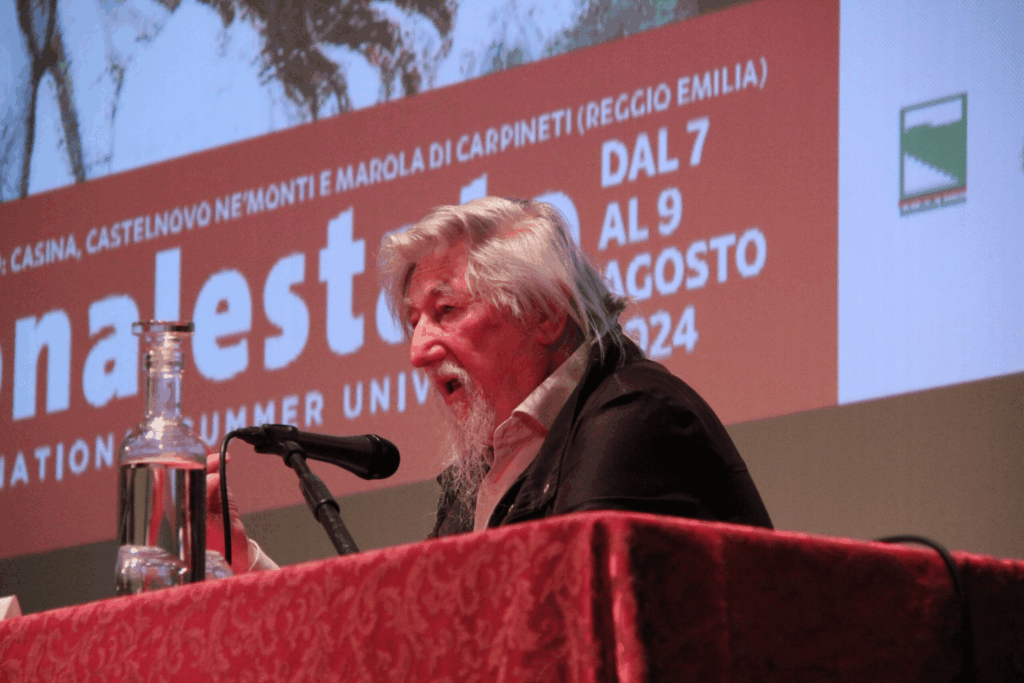
GIORGIO FORNONI is an accountant and freelance reporter.
After striving tenaciously to achieve professional success, over the years he discovered his passion for photography, which soon evolved into a desire to document and bring back to his country the experiences of distant lands and the important messages of world figures. Since 1975, he has been an independent reporter and has made videos for programs such as Report and other international programs.
During his career, he has interviewed the sub chief Marcos (leader of the Zapatistas), Abbé Pierre (founder of the Emmaus movement), Anna Politkovskaya (journalist murdered in 2006 for denouncing the Russian government and army for human rights violations in Russia and Chechnya), and many others.
He has taken part in Tonalestate since 2001.
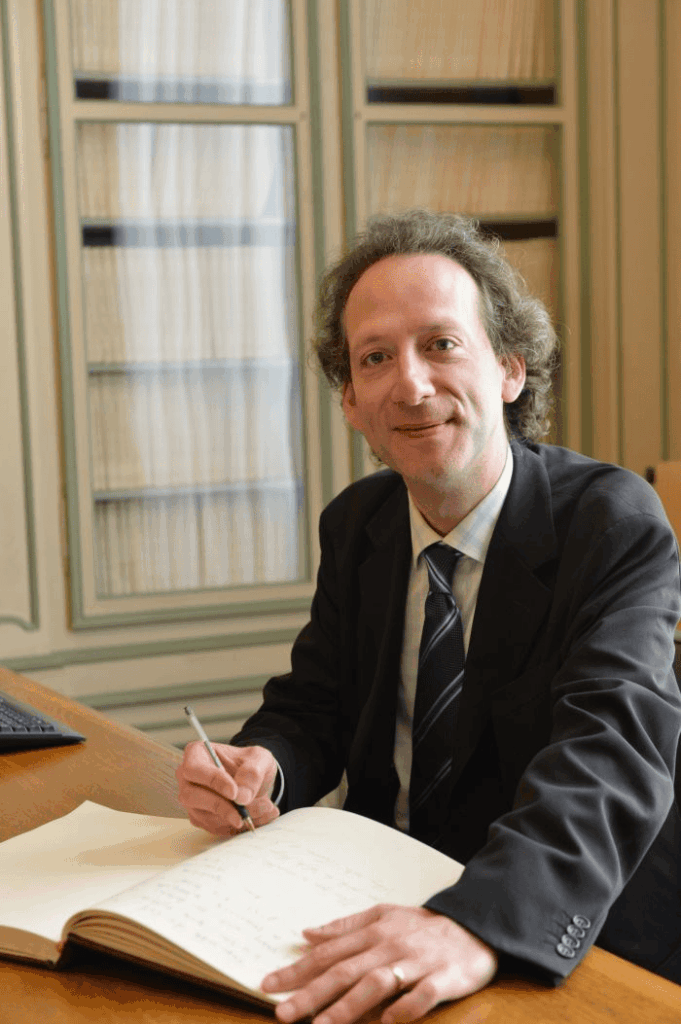
JEAN-MARC HOVASSE is a central figure in French literary studies, renowned for his profound knowledge of Victor Hugo. A former student of the École Normale Supérieure in Fontenay-Saint-Cloud and holder of an agrégation in modern literature, he earned a doctorate and a qualification to direct research at the Universities of Paris.
After teaching at various institutions, he consolidated his position as Director of Research at the CNRS, one of the world’s most prestigious research institutions. He is currently also coordinator of the “Autobiographie et correspondances” team at ITEM (CNRS/ENS Paris) and chairs the Société internationale de génétique artistique, littéraire et scientifique (SIGALES).
His most significant contribution is the monumental two-volume biography of Victor Hugo, Victor Hugo, Tome 1, Avant l’exil (1802-1851) (2001) and Victor Hugo, Tome 2, Pendant l’exil (1851-1864) (2008), a work that earned him the CNRS bronze medal.
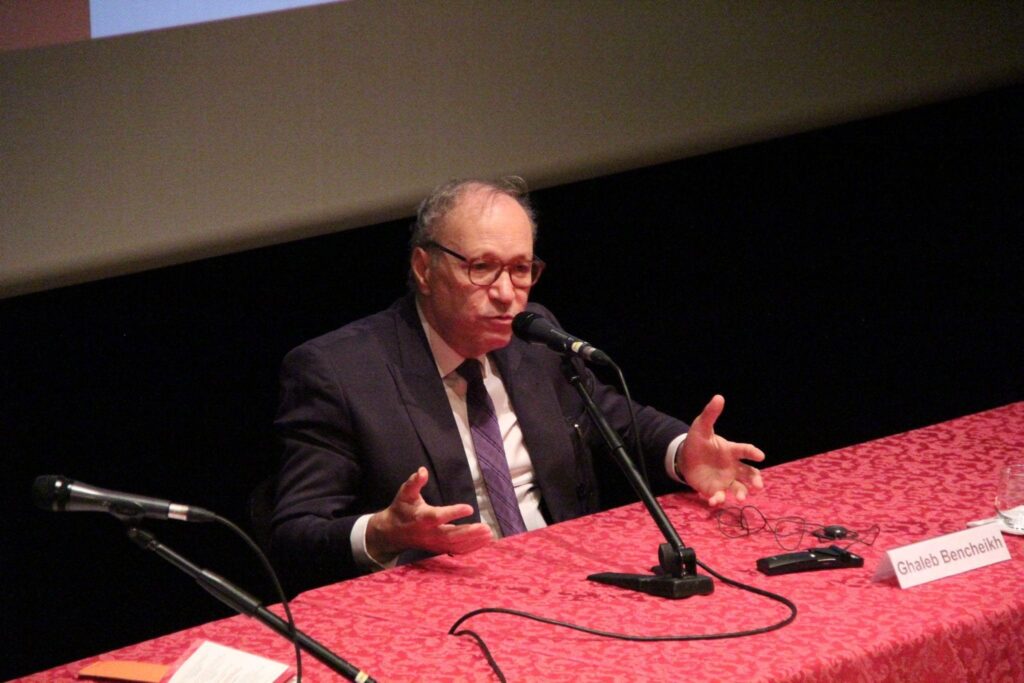
GHALEB BENCHEIKH holds a doctorate in science and physics. Until 2019, he hosted the TV program “Islam,” where he discussed theology and philosophy, and he continues to participate in programs related to Islam and its culture.
He is president of the French branch of the World Conference of Religions for Peace, where he has the opportunity to share his ideas on peace and non-violence.
After advocating for a reform of Islamic theological thought, he is considered a liberal Muslim and, thanks to this reform, in 2018 he was elected president of the Fondation de l’islam de France (FIF).
He has taken part in Tonalestate since 2022.
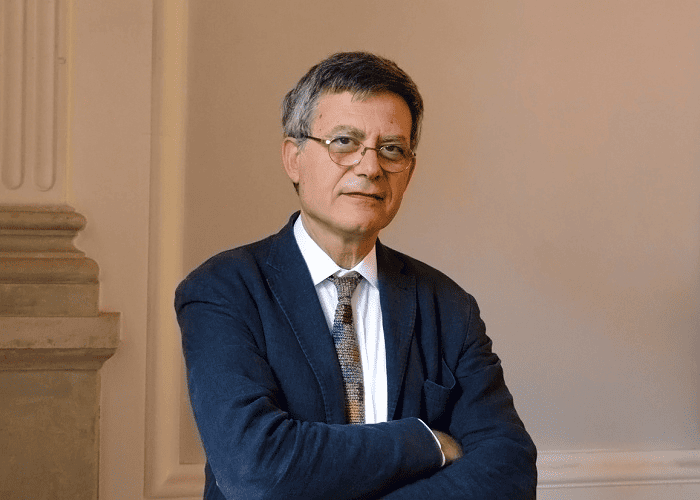
Born in Palermo on October 4, 1956, PAOLO RUFFINI has been a professional journalist since 1979 and holds a degree in Law.
His career has spanned important publications such as Il Mattino (1979-1986) and Il Messaggero (1986-1996), before moving on to radio at Rai (1996-2002) and Inblu Radio (2014-2018). He has also held prominent roles in television, from Rai3 (2002-2011) to La7 (2011-2014) and Tv2000 (2014-2018). He has received numerous awards for his work and has always promoted ethical communication. Since 2018, he has been the first lay person to hold the position of Prefect of the Dicastery for Communication in the Vatican, appointed by Pope Francis.
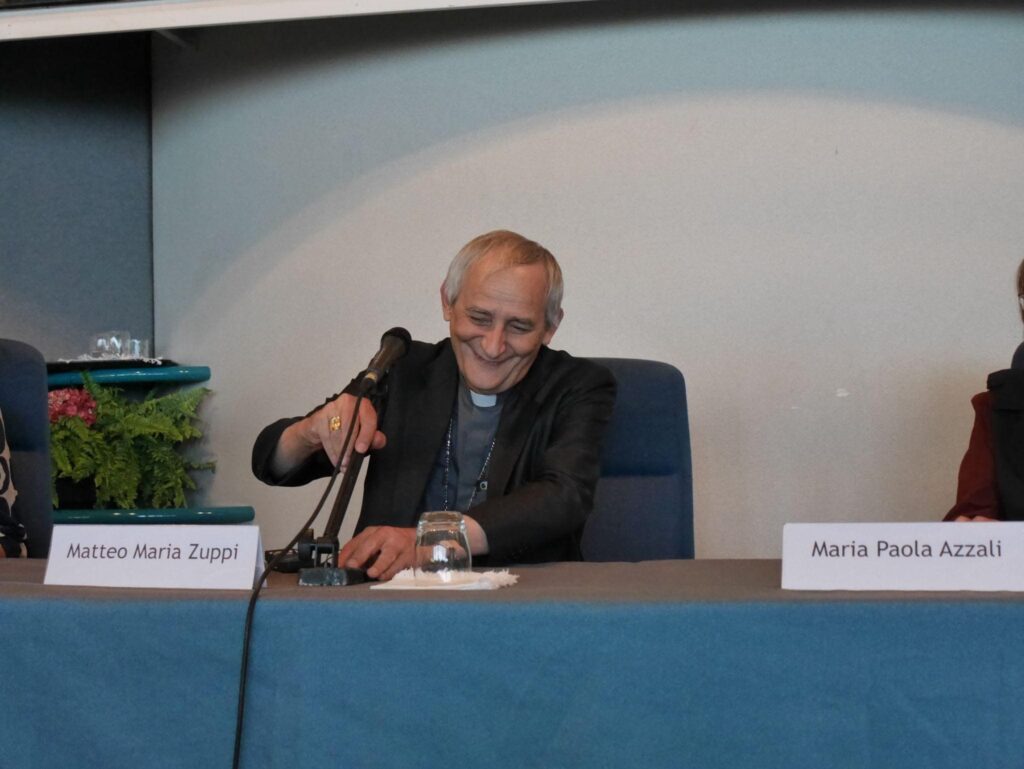
MATTEO MARIA ZUPPI,entered the seminary in Palestrina and obtained a degree in theology from the Pontifical Lateran University, then graduated in Literature and Philosophy from the University of Rome with a thesis on the history of Christianity. He was ordained a priest in 1981. From 2005 to 2010, he was prefect of the Third Prefecture of Rome and rector of the Church of Santa Croce alla Lungara since 1983.
In 1990, together with Andrea Riccardi, Jaime Gonçalves, and Mario Raffaelli, he acted as mediator in negotiations between the government of Mozambique (at the time controlled by the socialists of the Mozambique Liberation Front) and the Mozambican National Resistance party, which had been engaged in civil war since 1975. After 27 months of negotiations, the mediation led to the signing of the Rome Peace Accords on October 4, 1992, which marked the end of hostilities. On January 31, 2012, Pope Benedict XVI appointed him auxiliary bishop of Rome and titular bishop of Villanova; on April 14, he received episcopal ordination.
On October 27, 2015, he was appointed Metropolitan Archbishop of Bologna. On June 29, 2016, he received the pallium in St. Peter’s Basilica in the Vatican from Pope Francis.
On May 24, 2022, Pope Francis appointed him president of the Italian Episcopal Conference.
He has taken part in Tonalestate since 2017.
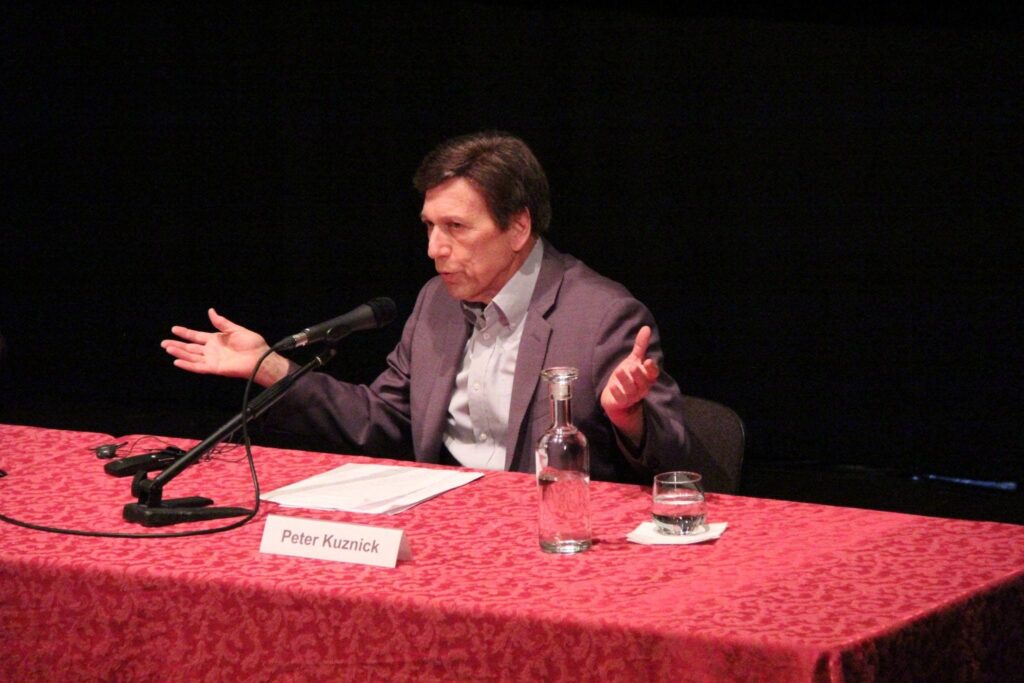
PETER KUZNICK is an American professor of history and director of the Nuclear Studies Institute at American University, which he founded.
A native of New York, he received his doctorate in 1984 from Rutgers University.
He participated in the civil rights and anti-Vietnam War movements and remains active in the struggles to abolish war and nuclear weapons. Over the years, he has participated in various projects with Japanese professors to discuss nuclear bombs, and since 1995, he has taken students from the Institute to Japan every summer for a cultural exchange.
Together with Oliver Stone, he co-wrote and directed a book and a 10-part documentary called “The Untold History of the United States.”
He has taken part in Tonalestate since 2022.
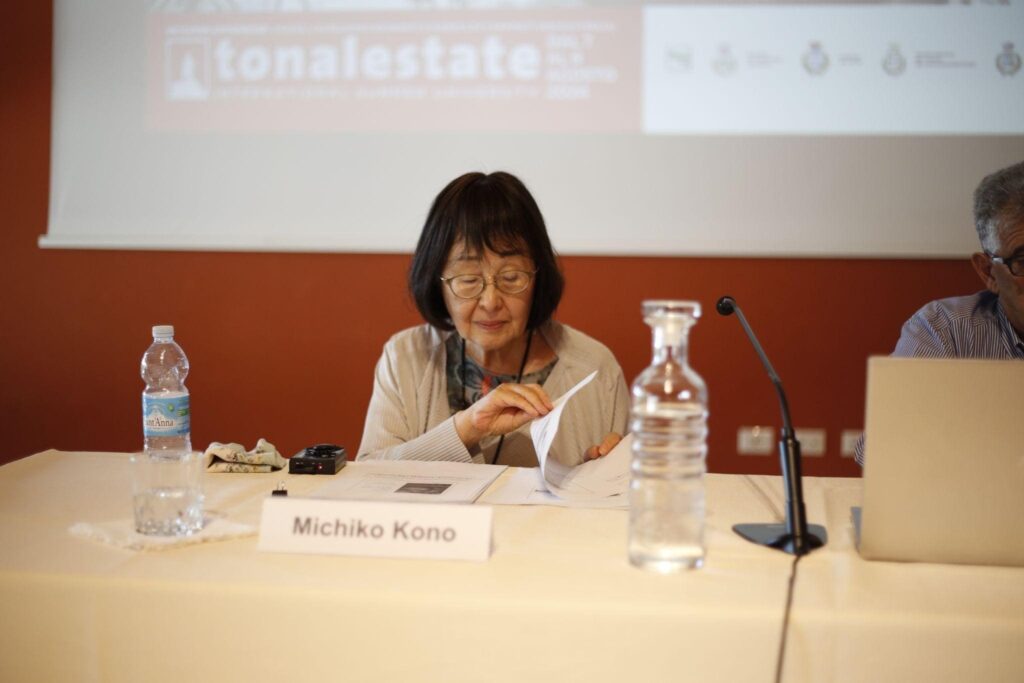
MICHIKO KONO is a peace volunteer in Hiroshima and a survivor of the atomic bomb dropped on August 6, 1945.
Born a few months before the bomb, in March 1945, she was exposed to radiation at only 4 months old.
She graduated with a degree in English Literature in 1967 from Hiroshima Jogakuin University. From 1967 to 1969, she worked at Nippon Kangyo Bank, where she was in charge of the foreign department.
In April 2001, she became a peace volunteer for Hiroshima and works as a museum guide. Since 2017, she has also been an A-bomb Legacy Successor.